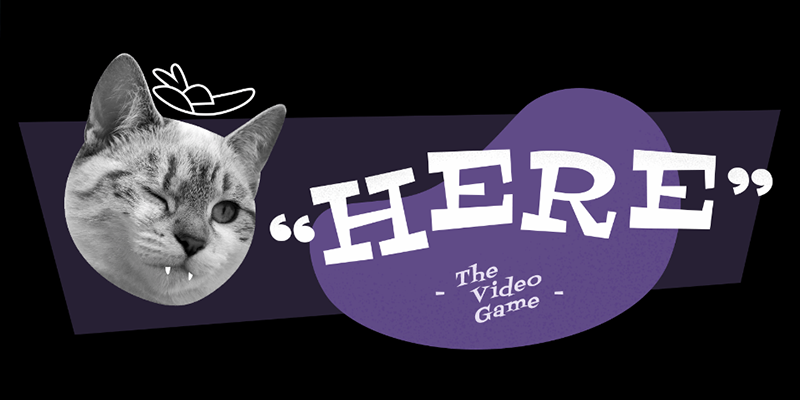
Philosophy Video Games at University of Malta: Launching “HERE-The Video Game”


We are proud to announce yet another philosophical computer game! Yes!
IDG’s Stefano Gualeni just released his newest, digital “attempt at playable philosophy”. The game is short and sweet, is titled “HERE” and can be freely accessed clicking on the link below:
>> http://here.gua-le-ni.com <<
Doing Philosophy Through Video Games
Last year Stefano Gualeni released “Something Something Soup Something” inspired by Ludwig Wittgenstein’s Philosohical Investigations. The game is an interactive version of the thought experiment meant to reveal the limitations in the use of analytical categories in our language... And ultimately that no one knows exactly what soup is!
Gaming Philosophy: From Soup to Indexicality
"HERE - the Video Game" explores the philosophical notion of indexicality. The players are challenged to engage with- (and be puzzled by-) what it means when the word “here” is used in a computer game... Or, rather, how many meanings of “here” can co-exist in a computer world. Have fun!
Students, staff, and friends of the Institute helped make the game possible. The game features guest voiceovers by Emily Short (award-winning game writer) and Pippin Barr (award-winning indie game designer), music and sound effects by Riccardo Fassone, and programming and visual effects by Diego Zamprogno.
(the complete credits list can be found on the website)
Philosophy Through Video Games present from Indie to AAA
Philosophical games have gained steam. Gualeni has worked on the small scale funny little thought experiment games such as Necessary Evil, Something Something Soup Something, and "HERE", but many computer games take philosophy seriously. Famous examples of large Intellectual Properties that have tackled weighty philosophical topics include The Stanley Parable which raises the conflict between free will and determinsim. The Bioshock series is well-known for their critique of individualism in their first game, and their dissecting utopia and utilitarianism in the sequel.
Philosophy Games for the Classroom
Research has shown that elements of fun and playfulness support high levels of engagement in learners increase their personal investment in learning. The Institute has long been harnessing this in their projects including eCrisis, Crosscult, CURIO, C2Learn, and iLearn. At the Athens Games Festival Prof. Gualeni was approached by teachers who use SSSS to teach students about the relativity of language.
Enough words though, go and play "HERE".
Want more words? Don't want to miss us? Subscribe to our Newsletter below.

